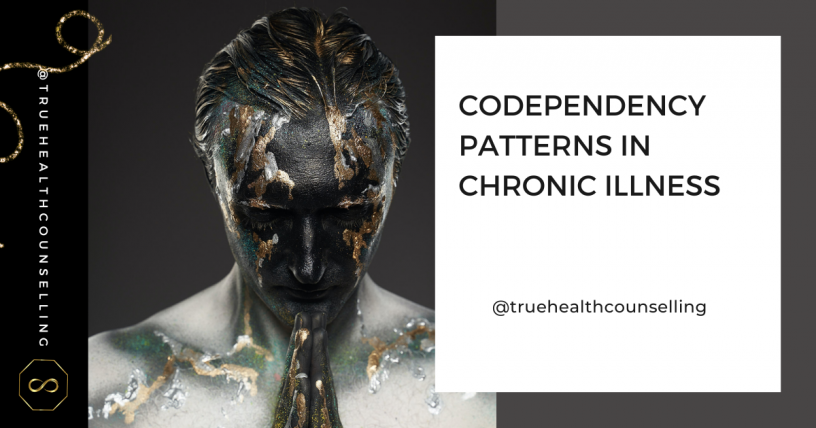Codependency Patterns in Chronic Illness
Written by: Tracey Nguyen, RN MN Nurse Psychotherapist
Did you know that codependency and chronic illness are linked? There is a clear relationship between codependent behaviour and chronic disease, even cancer. Codependency is normalized in our culture and society but it’s only harmful to the self because of the way we continue to abandon ourselves for the fear of disapproval by others. Constant self-abandonment to survive our relationships will lead to self-resentment and living in a chronic state of stress by constantly living by the measure of pleasing others without meeting our own needs first. In codependency, a person in a relationship becomes whatever the other person needs or adopts people-pleasing behaviours and living for others instead of living for the well-being of themselves. As a result, all of this life force energy is leaking or draining outside of our bodies by constantly paying attention outwardly, focusing on others and not paying attention to ourselves within.
Codependency is a preoccupation with caregiving for others and not looking after our own needs or what our heart needs and knowing how to honour the safety of our expression that we have inside because we’re just too busy pleasing or caretaking others. When the link between these psychological patterns and chronic illness is explored, a clear pattern of emotional dependency, a lack of personal autonomy, narcissism and entitlement exists.
These psychological patterns link to long-term emotional stress. We can often give our personal power away in relationships and become afraid of our partners in terms of the fear of getting rejected or invalidated by them. It’s common that individuals fear that their partners would not love them if they didn’t do what made them happy. We can be controlled by this relational pattern for the need of love and affection from our relationships and we can give up what we needed or want and break our own boundaries to get the attention we need. It is important to be aware of our boundaries and pursue a journey of meeting our own needs and not taking things personally when healing these relationship dynamics that exist in illness. Working through anger and resentment from unmet needs would facilitate our ability to open up to forgiveness, and grace and have naturally formed boundaries.
In this pattern, we need to stop worrying about other people, what other people think, living for others, and stressing about things in our lives because of other people. We need to stop being afraid of other people’s emotional reactions or walking on eggshells. When you are constantly walking on eggshells with a family member or your partner, it’s really stressful. Also, when there’s a lack of emotional connection and a lack of authentic expression, it can be taxing on the body when we don’t express ourselves. When we feel suppressed, we’re holding all that energy back and if we’re dealing with narcissism, entitlement and anger because of unmet needs, triggers and trauma, we also have to go through the process of anger release and just releasing trauma bonds, which is another deep journey in itself.
Breaking down narcissism and codependency is deep work in being able to take care of your emotions, empower yourself and advocate for yourself in every way.
Codependency is like when a person is drowning, do you drown with them or do you know how to stay afloat and help the other person? In codependent families usually, when one person goes down, another will go down with them. To a degree of course we’re always affected by our family members, but when it’s to the point you can’t function well, it’s a symptom of codependency which is actually quite normal. To begin healing the root causes of illness and the epidemic of cancer, we must also heal stressful codependent behaviour.
By: Tracey Nguyen, RN MN, Nurse Psychotherapist
truehealthcounselling@gmail.com





